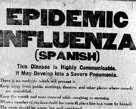In Scotland, birth, marriage and death certificates give detailed information not only of the person or people registered in the event but also give details of the parents.
Death certificates are a common source of conflicting evidence. The person registering the death is likely to be upset and can give the wrong information accidentally. They may not know some of the details or guess at them. Dependent on the registrar taking the details, they may have been encouraged to provide an answer so that no gaps were left!
However, even in birth and marriage certificates, details can bee recorded incorrectly.
For birth certificates, it is often only one parent who attended to register the birth and they may not know the details of their partner's family or some forget their marriage date!
For birth certificates, it is often only one parent who attended to register the birth and they may not know the details of their partner's family or some forget their marriage date!
With marriage certificates, there may be problems as one person may have filled in the details for both even though each person needs to sign the forms.
For any documentation, it may simply be that your ancestors could not read or write and they were reliant on someone else recording the details with no way for them to correct any mistakes.
So how do we deal with these types of problems?
Where we can corroborate the evidence then there is much more likelihood that this will be the correct information. Sometimes of course, when it has been recorded incorrectly once, then it may be repeated if the information is simply copied. However, what is far more likely is that it will be recorded incorrectly once and correctly on other occasions.
There may only be two pieces of evidence however so how should you deal with this? If you are recording a birth for example and have conflicting dates with no way to choose between the two, then record anything that is certain.
 |
| John Hunter |
On a family tree therefore we can record the year of his birth and the place as neither of these facts are disputed and are corroborated.
Keep a record of the other information and put a note in your files about the disputed date as you do not know what other information may come to light in the future to help clarify this.
Keep a record of the other information and put a note in your files about the disputed date as you do not know what other information may come to light in the future to help clarify this.
If you are writing a family history book then you can record the date but add in the information about the conflicting evidence on the day and month of birth. This can be an interesting item to include and most of us enjoy the mystery and to think about what might have happened!
For more information on how we can help you sort through conflicting evidence, please get in touch for a no obligation chat.
kintree@ymail.com








